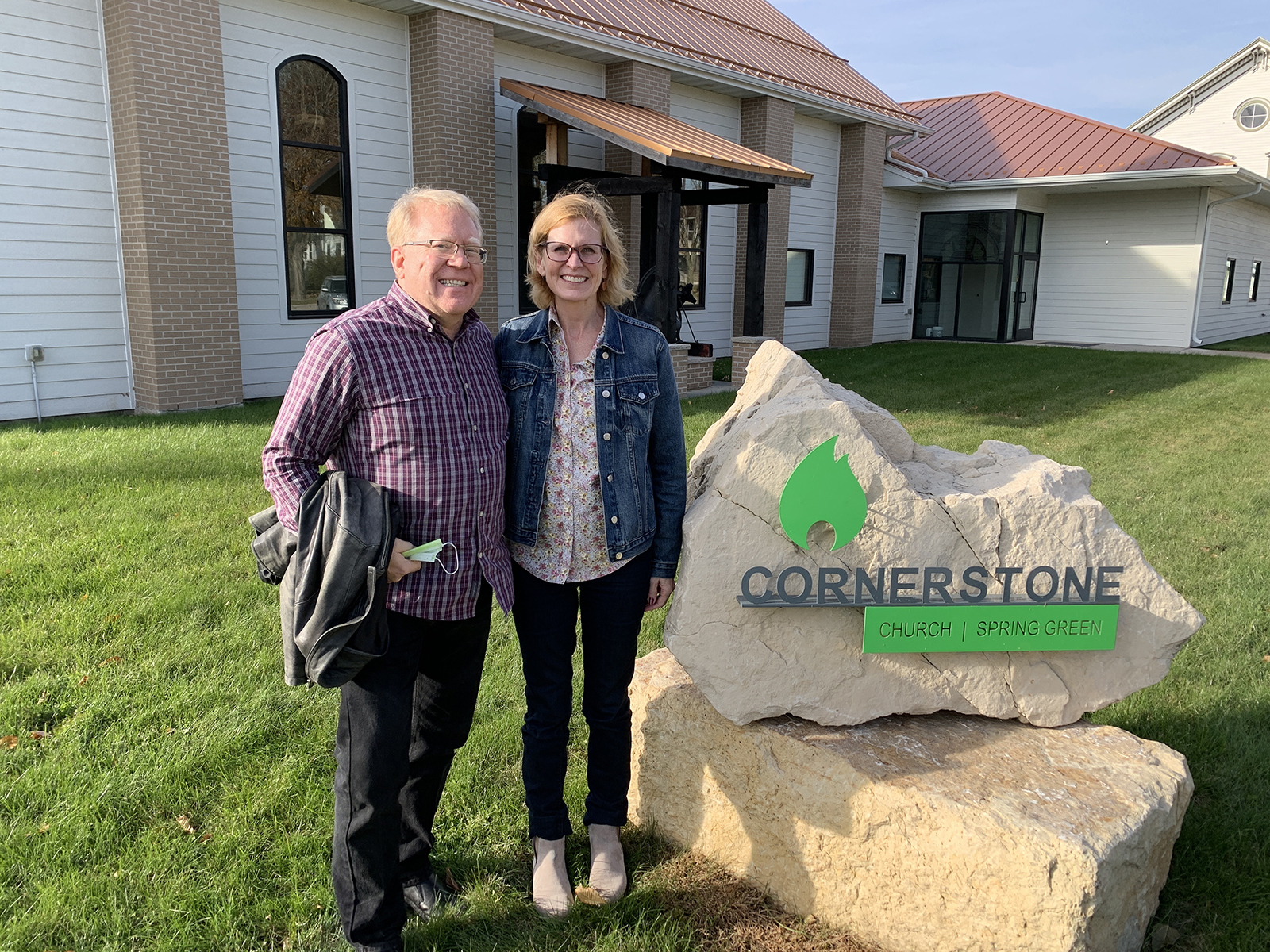The new building, which can seat about 200 people, features a large fellowship hall where the congregation hosted community meals pre-COVID, and a modern sanctuary equipped with a pair of projectors mounted on the ceiling. The back wall, which soars more than 30 feet high, is paneled in ash board, all milled from a more than century-old tree that once stood on the property and was taken down after the fire.
Things began to fray during the Trump era. The Millers were skeptical of Donald Trump as a candidate and, while they didn’t preach against Trump, if people asked, the Millers shared their doubts.
“That did not necessarily go over very well,” Derek Miller said.
Things got worse in 2020 after Deb Miller, who serves on the Spring Green village board, recorded a short home video detailing why she would not vote for Trump, despite being a lifelong Republican. The video was picked up by a group called Republican Voters Against Trump and went viral, eventually being shown in a montage during the Democratic National Convention — a turn of events that caught her by surprise.
“I didn’t expect anyone to see it,” she said.
The pandemic put Derek Miller’s roles as pastor and EMT in conflict. He saw people with COVID-19 die in the ambulance and when he insisted on social distancing and wearing masks in church, some people objected or left.
Derek and Deb Miller at Cornerstone Church of Spring Green, Nov. 7, 2021, in Spring Green, Wisconsin. RNS photo by Bob Smietana.
One saving grace for the Millers has been that they don’t rely on the church for most of their income. An IT professional, Miller ran a consultant business for years and eventually went to work for a local utility about eight years ago.
Balancing all three roles can be a challenge and the life of a small-church pastor is never easy, even in the best of times. These days, with COVID-19, polarization and the ongoing splintering of the evangelical world, Miller wonders if there’s a place for a church like Cornerstone over the long haul. Will there be enough people who share the Millers’ conservative theological beliefs and their concerns for social issues like race and refugees — which they believe are also issues the Bible cares about — to make the church sustainable?
“That’s a small slice of people,” Miller said.
Still, he believes in the importance of small congregations. He worries that in larger congregations, it’s too easy to be a spectator or a consumer — or to feel cut off from involvement or decision-making in a church’s ministries.
“I believe in small churches because I believe ministry belongs in the hands of regular people,” he said.
This article originally appeared here.












